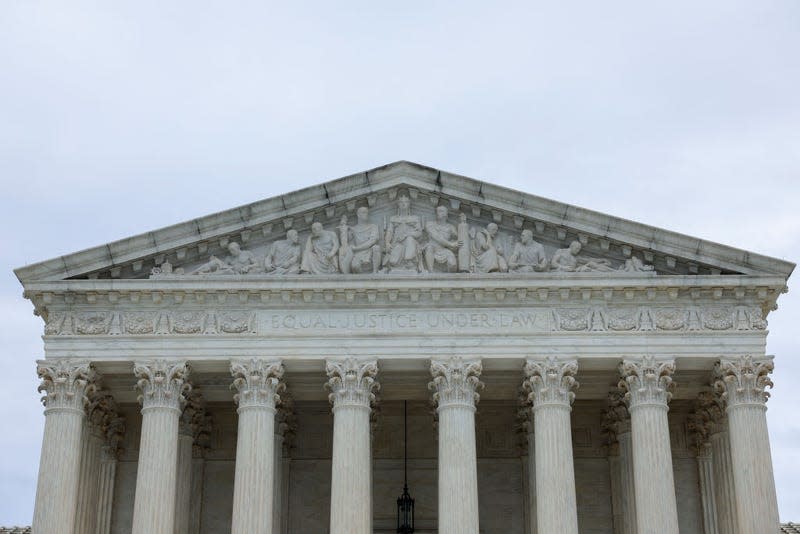Could the Supreme Court’s Ruling in Alabama Gerrymandering Case Further Dilute Black Voting Power?

As their new term begins, the Supreme Court is due to hear two cases concerning voting rights. One in particular concerning gerrymandered maps in Alabama could further dilute the protections of the Voting Rights Act of 1965 depending on how the conservative-weighted court votes. Starting on Tuesday, the Supreme Court is due to hear arguments in the Merrill v. Milligan case, as USA Today notes.
While Alabama’s current Black population is at 27%, Alabama’s proposed voting maps would give only one of the state’s seven congressional districts a chance to elect a Black representative. In January, a three-judge panel ruled the maps violated the Voting Rights Act and create a second district where Black voters either made up a majority or near majority of the population. Unfortunately, the Supreme Court then sided with Alabama in a 5-4 vote stating that such maps would be too close to the spring primaries to make this change.
Read more
Aside from Halle Bailey, Here Are Other Black Disney Actors and Characters We Love
Move Over King Charles, Here Are More Black Men We Call Royalty [UPDATED]
The main argument is that if these maps are allowed to stand, this gives Black Alabama citizens no chance to elect representatives to elevate their interests.
“This is just about getting Black voters, finally, in Alabama, the opportunity to elect their candidates of choice. It’s not necessarily guaranteeing that they will have their candidate elected,” said Deuel Ross, senior counsel at the NAACP Legal Defense and Educational Fund, which is representing the plaintiffs.
“In choosing not to do that, you’re denying the people of the Black Belt the opportunity to elect an additional person that can really go to the mat on their interests,” said Ross, who is one of the attorneys who will argue the case in a challenge backed by the Biden administration.
Attorneys representing Alabama are trying to counter, saying the Black population is “too spread out” throughout the state to make a second district.
“The Voting Rights Act does not force states to sort voters based on race,” Marshall said in a statement. “The VRA is meant to prohibit racial gerrymanders, not require them.”
As fate would have it, everything circles back to the state of Alabama. In 2013 in a 5-4 ruling, the Supreme Court took away the Justice Department’s power to review election laws in states with a history of racial discrimination. This is why gerrymandering and anti-voter laws have been rampant after the 2020 Presidental election. The plaintiffs will most likely ask the court to stick to the guidelines of the lower panel ruling.

